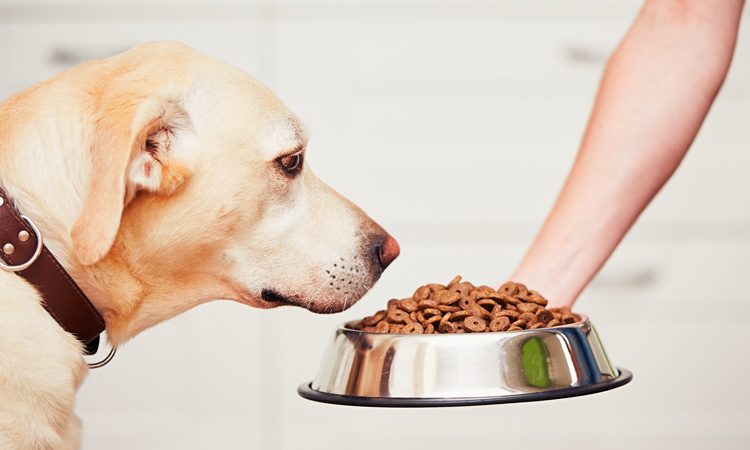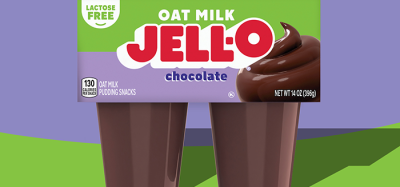Vegan pet food – what’s it all about?
- Like
- Digg
- Del
- Tumblr
- VKontakte
- Buffer
- Love This
- Odnoklassniki
- Meneame
- Blogger
- Amazon
- Yahoo Mail
- Gmail
- AOL
- Newsvine
- HackerNews
- Evernote
- MySpace
- Mail.ru
- Viadeo
- Line
- Comments
- Yummly
- SMS
- Viber
- Telegram
- Subscribe
- Skype
- Facebook Messenger
- Kakao
- LiveJournal
- Yammer
- Edgar
- Fintel
- Mix
- Instapaper
- Copy Link
Posted: 24 May 2022 | Louisianna Waring | No comments yet
Louisianna Waring of the Vegan Society shares insights for the vegan cat and dog food market – and outlines some areas where consumers might opt for meat-free alternatives.


Interest in vegan food for cats and dogs has been steadily increasing for a number of years. With more and more people around the world either turning completely vegan or incorporating more vegan dishes into their diets, it is no wonder that this shift in mindset is mirrored in the way we care for the animals we share our homes with.
Traditional animal care food brands are now incorporating meat-free or vegan products into their ranges. As well as this, many cat and dog food start-ups have recently launched with vegan principles at their core.
Future Market Insights estimates that in 2021, the global vegan dog food market was worth $12.22 billion and sales are expected to grow at an estimated 6.9 percent compound annual growth rate (CAGR) over the next decade. It also estimates that the global vegan cat food market is worth $10.56 billion, with sales set to grow at 7.2 percent CAGR in the next 10 years.
Although still a relatively niche area, published research in the field is growing, with Veterinary Professor Andrew Knight (University of Winchester) leading the way in the UK. Some of Knight’s most recent research followed the diets and health of 2,500 dogs over the course of a year, which is the largest study to date of its kind. The results suggested that vegan diets are a safe and healthy option for dogs as long as they are fortified.
Despite growing public interest and media attention, these industries are older than many realise. V-dog has been pioneering this category for over 40 years as it was the first commercially available meat-free dog food in the world, launching in 1980 in the UK under the name ‘Happidog’. In addition to this, vegan cat food has already been on sale in the UK for 18 years.
The Vegan Society understands that people with companion animals must seek to do what is best for them and that any changes to their diet should be considered with the utmost care and consideration. In one of our latest industry reports – Vegan Animal Care: Consumer Motivations, Barriers, and Market Potential – we bring brand new insights to the marketplace, as well as highlight research showing some of the ethical, environmental and health benefits posed by this growing industry. Our research consisted of two surveys, involving 500 UK adults living with cats and 500 UK adults living with dogs. The results are outlined below.
Vegan animal care – what we found out…
One of the first questions we asked our panels was their initial opinion on vegan foods for their companion animals. In response to this, 31.8 percent of those with cats and 32 percent of those with dogs said they would be interested in purchasing vegan food for their furry friends as long as it was healthy. Plus, a further 17 percent of those with cats and 13 percent of those with dogs said they would purchase it as long as it was cost comparable to non-vegan food.


Many dog and cat guardians said they would be interested in purchasing vegan food for their furry friends as long as it was healthy.
We were keen to understand what might influence or motivate someone to purchase vegan foods for their cats and dogs in the future. Taste approval from our animal companions came out as the most popular option for both panels, with 39 percent of those with dogs and 43.7 percent of those with cats saying this would influence them to purchase. Other key influences for both panels included price promotions, more nutritional benefits compared to non-vegan foods and more nutritional information from animal experts. The least popular option from both panels was celebrity endorsement.
Following this, we wanted to know in which product ranges the panels would like to see a greater selection of vegan products. The most popular option in both panels was treats, with 47.5 percent of those with cats and 44.2 percent of those with dogs saying they would like to see more vegan treat options on the market.
This indicates that there is a strong interest in ethical food products among our audience, but that there may be hesitation for these to be used at every meal. Other popular choices included more vegan medicinal products (such as flea treatments), more vegan grooming products and more vegan nutritional supplements. Plus, 32.8 percent of those with cats and 34.4 percent of those with dogs, said they were keen to see the future development of more vegan food options – good news for this growing industry!
Vegan Trademark
As well as being an educational charity, The Vegan Society also manages the Vegan Trademark. Launched in 1990, the Vegan Trademark is the oldest and largest vegan certification scheme in the world, and we work with numerous animal care brands to ensure their vegan products meet our robust standards. These include companion animal food, treats, snacks, grooming products, nutritional supplements, toys and beds. Around 50 percent of our product registrations in the animal care category have come in the last two years alone (2019–2021) and we expect this to grow rapidly in the coming years.
Many parts of the animal care industry, such as food and treats, are ripe for innovation, but this must be considered with the utmost care and guidance by animal experts when it comes to animal health. On the other end of the spectrum, new innovations in green and ethical toiletries and fabrics are now keeping pace with consumer demand for animal-free alternatives. This means that non-food items for cats, dogs and other animals – such as leads, bedding and grooming products – can and should be made with the ethical implications to all animals in mind.
To download The Vegan Society’s reports for free, click here.
About the author:
Louisianna Waring is the Senior Insight and Policy Officer and The Vegan Society. She manages consumer and market research at the Society and also leads on policy issues that affect vegan businesses, including proposed changes to vegan food labelling. Louisianna also helped to found, and currently sits on the steering committee of, the Plant-based Food Alliance UK. This is a newly launched coalition of businesses and NGO’s working to steer food, business and environmental policy towards more plant-based solutions.
Related topics
Ingredients, Plant based, Product Development, Research & development, retail, The consumer









